Every Day Stoic: 7 Powerful Habits for Positive Change 2025
Embracing Daily Stoic Wisdom for Modern Life
Every day stoic practices offer a structured approach to finding calm and purpose in our chaotic world. If you’re looking to join a daily meditation practice rooted in ancient wisdom, here’s what you need to know:
- Morning meditation: Start each day with 5-10 minutes of reflection on what you can and cannot control
- Evening review: End your day by asking “What went well? What could I improve?”
- Memento mori: Regularly remind yourself of life’s impermanence to prioritize what truly matters
- Practice the four virtues: Wisdom, courage, justice, and temperance
The every day stoic approach draws from the teachings of ancient philosophers like Marcus Aurelius and Seneca, who developed practical exercises to cultivate resilience and inner peace. Unlike many modern self-help approaches, Stoicism doesn’t promise endless happiness—instead, it offers something more valuable: a framework for navigating life’s inevitable challenges with grace and purpose.
“Begin at once to live, and count each day as a separate life,” advised Seneca, highlighting one of Stoicism’s core principles—that we should approach each day with intention and presence. This mindset serves as a powerful antidote to the anxiety, overthinking, and digital overwhelm that characterize modern life.
I’m digitaljeff, a content strategist and filmmaker who has integrated every day stoic practices into my work helping creators develop resilience and discipline in their digital careers. Through my work with the Unsigned Creator Community, I’ve witnessed how these ancient practices transform modern creative lives.

Handy every day stoic terms:
– stoic way of life
– a guide to stoicism by st george stock
– stoicism in relationships
Every Day Stoic Principles for Modern Life
There’s something beautifully timeless about the every day stoic approach. These principles weren’t created yesterday—they’ve been helping people steer life’s challenges for nearly 2,000 years. Yet somehow, they speak directly to our modern struggles as if they were designed specifically for our hectic digital age.
At its heart, Stoicism teaches us a refreshingly simple truth: focus your energy on what you can actually control (your thoughts, judgments, and actions) and peacefully accept what you cannot (external events, others’ opinions, and natural processes).
This distinction—what philosophers call the dichotomy of control—is the cornerstone of all every day stoic practices. As Epictetus so plainly put it, “Some things are within our power, while others are not.” When you truly internalize this idea, it’s like putting down a heavy backpack you didn’t realize you were carrying. The exhausting effort of trying to control the uncontrollable simply falls away.
In our world of constant notifications, social media comparison, and information overload, this ancient wisdom provides a much-needed anchor. When you accept an every day stoic mindset, you naturally begin to respond thoughtfully rather than react emotionally to triggering situations. You find pockets of tranquility even amid chaos. You bounce back faster from setbacks. And perhaps most importantly, you build relationships based on shared values rather than mere convenience.
While much of Stoic practice happens inside your own mind, there’s tremendous power in practicing alongside others. In our Unsigned Creator Community, we’ve watched creators who practice Stoicism together develop stronger creative discipline and produce more authentic work. There’s something about sharing this journey that deepens the experience and helps the lessons stick.
Scientific research increasingly supports what Stoics have known for centuries. A study on mindfulness practices found that regular reflection exercises similar to Stoic meditation can significantly reduce stress hormones and improve emotional regulation—exactly what creators need in today’s demanding digital landscape.

The Four Pillars of the Every Day Stoic
The every day stoic approach revolves around four core virtues that serve as your inner compass for navigating life’s complexities. These aren’t just lofty philosophical concepts—they’re practical tools you can use every single day:
1. Wisdom (Sophia): This is your ability to see situations clearly and make sound judgments. Wisdom means pausing before reacting, questioning your first impressions, and trying to understand different perspectives. It’s about continuous learning and seeing things as they truly are, not as you fear they might be or wish they would be.
2. Courage (Andreia): Beyond physical bravery, this is moral courage—doing what’s right despite fear, discomfort, or social pressure. For creators, courage might mean sharing vulnerable work, standing by your creative vision when others doubt it, or choosing meaningful projects over merely profitable ones.
3. Justice (Dikaiosyne): At its core, justice is about treating others with fairness, compassion, and respect. It reminds us we’re social beings with responsibilities to our communities. In the digital world, justice translates to creating ethical content, supporting fellow creators, and genuinely contributing to your audience’s wellbeing.
4. Temperance (Sophrosyne): This virtue helps you find balance through moderation and self-discipline. For modern practitioners, temperance might mean setting healthy boundaries with technology, managing emotional reactions, or finding the sweet spot between creative burnout and procrastination.

These four virtues work together as a system. Wisdom helps you understand what justice requires in a specific situation. Courage gives you the strength to act on that understanding. Temperance ensures you don’t go to extremes in your pursuit of virtue.
Try this simple practice: Each morning, choose one virtue to focus on throughout your day. Notice opportunities to embody that virtue in your interactions, work, and personal choices. In the evening, reflect on how you expressed (or struggled to express) that virtue, and what you learned from the experience.
For a deeper exploration of these virtues and how they form the foundation of Stoic practice, visit our guide to the Stoic Way of Life.
Adapting Ancient Wisdom to 21st-Century Challenges
The beauty of the every day stoic approach is how seamlessly it addresses our most modern problems. Marcus Aurelius never had to deal with Instagram envy or email anxiety, but the principles he practiced apply directly to these contemporary challenges.
Overthinking and Anxiety
Our minds can become battlegrounds of endless what-ifs and should-haves. The every day stoic solution is refreshingly straightforward: identify what’s within your control, focus your energy there, and practice accepting what isn’t.
When overthinking strikes, try asking yourself, “Is this within my control?” If not, practice the art of willing acceptance—not resignation, but a peaceful acknowledgment of reality as it is. If it is within your control, channel that mental energy toward constructive action rather than endless rumination.
Digital Overwhelm and Social Media
The ancient Stoics warned against being swayed by the opinions of the crowd. Today, we face this challenge on an unprecedented scale through social media. An every day stoic approach to digital life means being intentional about how and when you engage online.
I love what I call the “Shopping Mall Rule”—only follow accounts you’d genuinely be happy to see if you bumped into them at the mall. Regular digital detoxes can help reset your attention. Try completing your most important morning work before checking any devices. And perhaps most importantly, evaluate your content consumption based on whether it helps you grow in virtue, not just whether it entertains you.
One reader shared how this approach transformed their relationship with social media: “I was on a train when it suddenly hit me—these strangers’ opinions don’t actually determine my worth. I started unfollowing accounts that made me feel inadequate, and now I use social media as a tool rather than letting it use me.”
For more insights on how Stoicism can help you steer difficult relationships, including those in digital spaces, check out our guide on Stoicism and Toxic Relationships.
Morning Preview and Evening Review
Two powerful every day stoic practices for our distracted age are the morning preview and evening review. These simple rituals bookend your day with intentionality and reflection.
Morning Preview: Upon waking, take 5-10 minutes to remind yourself: “I am rising to the work of a human being.” Anticipate potential challenges and prepare your responses. Set intentions aligned with your values. Acknowledge that you will encounter difficult people today, but choose not to be upset by them.
Evening Review: Before sleep, ask yourself: “What bad habit have I worked on today? What vice have I checked? In what respect am I better than I was this morning?” Be honest but not harsh with yourself.

These practices improve sleep quality, strengthen memory, soothe anger, and align your daily actions with your deeper values. As Seneca noted, he would review his day “when the light has been removed and my wife has fallen silent,” examining his words and deeds without self-deception.
You can do these reviews through journaling, voice memos, or simple mental reflection. The key is consistency and honesty.
How Every Day Stoic Differs from Other Resources
The every day stoic approach we share at Unsigned Creator Community—CheatCodesLab stands apart in several meaningful ways:
Accessibility is at the heart of everything we do. While some Stoic resources present the philosophy in academic language that requires a dictionary to decode, we focus on practical applications for everyday life. Our content translates ancient wisdom into actionable steps that make sense for modern creators.
We believe Stoicism thrives in community. Rather than positioning it as a solitary practice of lone philosophers, we encourage shared learning, accountability partnerships, and group discussions that bring these principles to life through real human connection.
Our approach is specifically custom to creators facing the unique challenges of digital work—like creative blocks, audience building, and maintaining authenticity in an economy that often rewards superficiality. We understand the specific pressures you face because we face them too.
We also integrate modern science with traditional Stoic teachings. By complementing ancient wisdom with insights from contemporary psychology, neuroscience, and behavioral economics, we’ve created a robust framework for personal development that honors tradition while embracing new findies.
| Feature | Every Day Stoic Guide | Generic Stoic Books |
|---|---|---|
| Practical Exercises | Daily actionable practices | Often theoretical explanations |
| Community Support | Built-in accountability | Typically solitary reading |
| Creator-Specific | Custom to digital creators | General audience focus |
| Multimedia Format | Text, audio, visual resources | Usually text-only |
| Scientific Backing | Integrates modern research | Primarily philosophical |
Our mission isn’t to preserve Stoicism as a museum piece, but to keep it alive as a vibrant, evolving practice. We believe these principles can transform not just individual lives but the entire creator economy, fostering more meaningful content, sustainable creative practices, and authentic connections.
For a deeper dive into applying Stoic principles to your creative work and life, explore our comprehensive guide on Mastering the Stoic Way of Life.
Conclusion: Start Your Every Day Stoic Journey Today
The beauty of an every day stoic practice isn’t about reaching some philosophical mountaintop—it’s about taking small, consistent steps toward a more intentional life. As Epictetus wisely advised, “Don’t explain your philosophy. Embody it.” True Stoicism shows up in how you live, not in what you can recite.
We’ve seen remarkable changes at Unsigned Creator Community—CheatCodesLab, especially among creators navigating the rollercoaster of digital life. The benefits unfold like a slow-blooming flower:
In those first couple weeks, you’ll notice yourself catching automatic reactions before they take over. After a month or three, you’ll find yourself staying calmer during stressful situations. By the half-year mark, criticism that once would have crushed you for days might roll off more easily. And after a year? Many practitioners describe a fundamental shift in how they see the world and what they value.
What makes the every day stoic approach so accessible is its beautiful simplicity. No need for expensive retreats or years studying ancient Greek. You can begin right where you are, with whatever challenge sits in front of you today.

Let’s clear up a common misconception: Stoicism isn’t about becoming emotionally dead or detached from life. It’s quite the opposite—it’s about engaging fully while maintaining your inner freedom. As Marcus Aurelius put it, “The happiness of your life depends upon the quality of your thoughts.”
We’d love for you to join our community of creators practicing these principles. Together, we’re building not just more successful creative careers, but more meaningful lives.
For deeper dives into Stoic practices for creators, explore our Stoicism pillar content.
Your First Seven Days of Every Day Stoic Practice
Ready to dip your toes into the every day stoic waters? Here’s a gentle seven-day introduction to weave these practices into your life:
On your first day, focus on what you can actually control. Spend a few minutes in the morning identifying three things within your power today and three beyond it. By evening, you might be surprised how this simple awareness shifted your day.
Day two introduces the morning preview—just five minutes upon waking to anticipate challenges and set intentions. Many practitioners tell us this mental preparation completely changes how they respond to difficult situations.
By day three, you’ll practice a brief memento mori meditation—not to be morbid, but to sharpen your appreciation for life. Ask yourself: “If today were my last, would I be satisfied with how I’m spending it?” Then make one small change to better align with what truly matters.
The fourth day invites you to choose one virtue—wisdom, courage, justice, or temperance—and actively look for ways to express it. In the evening, jot down specific moments where you practiced this virtue.
Day five tackles digital discipline with the “Shopping Mall Rule”—only follow accounts you’d genuinely greet if you saw them in person. Set specific times for checking email and social rather than constant peeking. Notice how these boundaries affect your mental state.
On the sixth day, add an evening review before sleep. Without judgment, ask: What went well? What could improve? What did I learn? Write down just one insight to carry forward.
Your week concludes by connecting with others. Share one principle that resonated with you, either online or in person. The Stoics knew that philosophy thrives in community, not isolation.

Consistency matters more than perfection. You’ll forget a morning meditation or snap at someone—we all do. The every day stoic response isn’t harsh self-criticism but a calm return to practice.
As Epictetus reminded his students, “Make it your study then to confront every harsh impression with the words, ‘You are but an impression, and not at all what you seem to be.'” With time, these daily practices become second nature, changing not just your responses but your very perceptions.
The path isn’t always easy, but it’s always worthwhile. By committing to these simple practices, you join a tradition spanning centuries—people seeking wisdom, courage, justice, and temperance in ordinary moments.
We at Unsigned Creator Community—CheatCodesLab are here walking alongside you. As Seneca wisely advised, “Begin at once to live, and count each day as a separate life.”

















